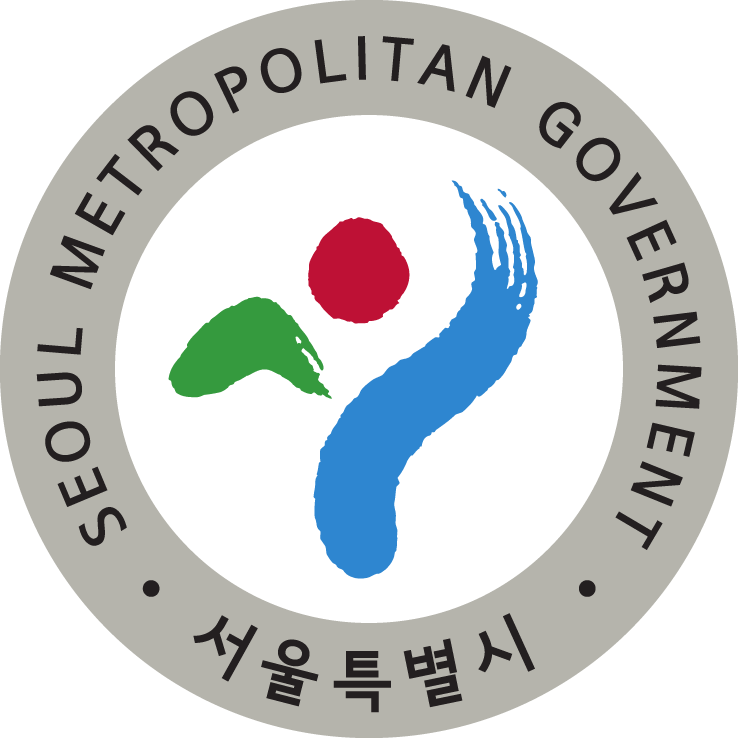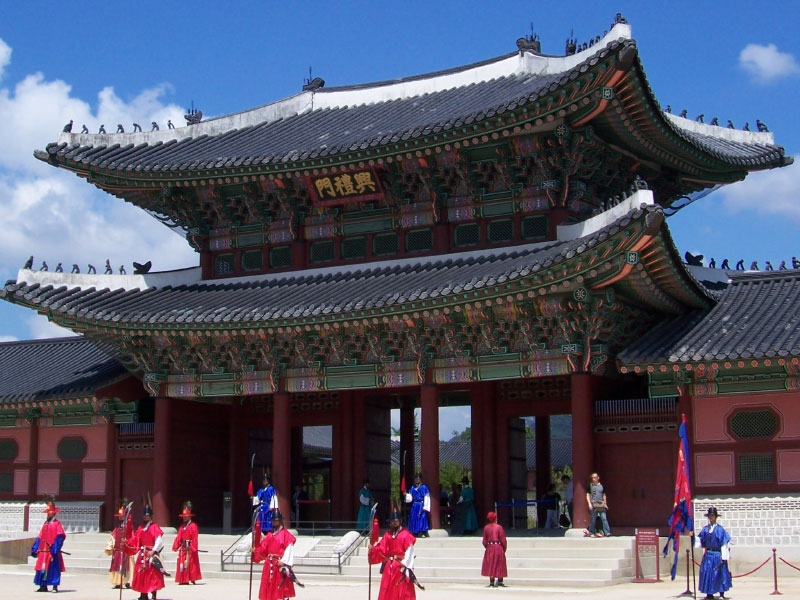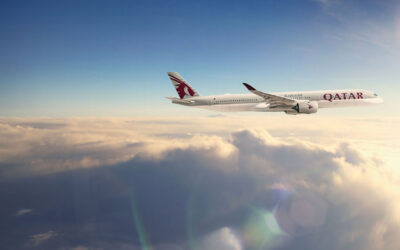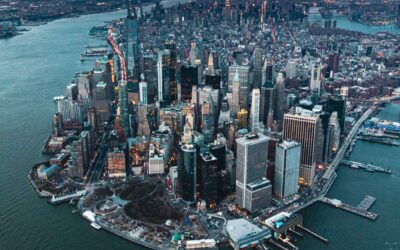Travelling to Seoul?
Are you planning on travelling to Seoul (서울) for work? Get to know the capital of South Korea better in this comprehensive guide for business travellers.
The rise of Seoul is quite remarkable when you consider that it once had to sprout from the ashes left by the Korean War. What was once a swathe of rubble and ruin is now a global tech hub where neon-lit skyscrapers stand beside traditional hanok houses, both striking symbols of the city’s and country’s rapid transformation.
This dizzying blend of old and new is mirrored in Seoul’s business environment, a place where innovation is revered and tradition is respected. With a workforce renowned for its education and work ethic, and a government committed to fostering a business-friendly climate, Seoul offers unprecedented opportunities for companies looking to make their mark on the Asian market.
In this comprehensive guide to Seoul for business travellers, we delve deeper into navigating the city’s unique corporate landscape, offer our top tips for getting around, and pick out our top 3 things to see or do to make your trip unforgettable.
Seoul Fact File

The emblem features the Korean letters for “Seoul” in the shape of a mountain, the Sun, and the Hangang (River),
Languages
The primary spoken language is Korean, a language isolate that is not closely related to any other language. Some residents also speak Japanese and Mandarin. English is widely spoken and understood.
Currency
South Korean Won (₩)
Avg. Temperatures
Spring (Mar-May) = 9.8°C (49.6°F)
Summer (Jun-Aug) = 23°C (73.4°F)
Autumn (Sep-Nov) = 14°C (57.0°F)
Winter (Dec-Feb) = -2°C (28°F).
Getting To Seoul
By Air (공기)
Incheon International Airport (ICN) is the primary gateway for international flights and is located about 30 miles (48km) west of Seoul. It’s a modern, efficient hub offering a wide range of services. Gimpo International Airport (GMP) is smaller and primarily serves domestic flights and some regional international destinations. It’s located closer to Seoul city centre.
By Road (도로)
If you’re driving into Seoul from elsewhere in South Korea there are various options. Gyeongbu Expressway is the main highway connecting Seoul to Busan, the second-largest city in South Korea, while the Seohaean Expressway connects the city to the western coast of the country.
By Rail (레일)
Seoul can be accessed via routes on the KTX high-speed rail network, a fast and comfortable way to travel between major cities in South Korea. The KTX takes about 2 hours and 40 minutes to travel between Seoul and the second city Busan.
Business Culture & Etiquette
South Korea has a deeply ingrained hierarchical structure, and building relationships within these hierarchies is paramount to anyone looking to do business in the country. Showing respect for elders and superiors, as well as using the appropriate titles and honourifics, is the key to building trust
It is also useful to understand the concept of Kibun (기분). Kibun refers to one’s emotional state or mood, and it’s considered essential to maintain harmony in interpersonal relationships. Avoiding confrontation, criticism, or rejection is crucial to preserving kibun. This often leads to indirect communication and tactful business dealings.
Patience and perseverance are key to successful business interactions in Seoul. Decision-making processes can be slower than in some Western cultures due to the emphasis on consensus-building – you might have to wait a little longer to seal the deal, but when you do, your work will be built on loyalty and trust.
Here are a few other top business tips:
- Preserving one’s dignity or face is crucial. Avoid direct criticism or confrontations. Negative feedback should be delivered privately and tactfully.
- Korean dining etiquette is complex. Many Korean meals involve sharing dishes placed in the centre of the table. Use your spoon or chopsticks to transfer food to your plate before eating. It’s also a common gesture to fill others’ glasses with water or alcohol. Be prepared to do the same for others.
Crime & Safety
Seoul is generally considered a very safe city for travellers – the 25th safest city in the world according to data collated by Numbeo. However, despite the low crime rate, it is important to maintain a sense of precaution when moving around the city.
Pickpocketing is the most common crime targeting travellers, especially in crowded areas such as Gangnam, Hongdae, and Myeongdong. It’s advisable to keep valuables, such as passports and large amounts of cash, secure in a money belt or hidden pocket.
While same-sex marriage is not legal, South Korea is generally welcoming to LGBTQ+ travellers. Seoul is particularly inclusive in this regard, though be wary that attitudes may differ across the country.
Here are a few of our other top safety tips:
- In South Korea, the emergency number for police, fire, and ambulance services is 112.
- If you need to take a taxi anywhere, Check that the driver is using the meter and be sure to pay only the price that is shown. Official taxis can be recognised by their yellow number plates and TAXI roof signs.
Getting Around Seoul
Subway (지하철)
The Seoul Metro covers almost every corner of the city, with 20 lines and nearly 300 stations. Subway maps show stations in Hangeul script and English. The best way to pay for fares is by getting hold of a rechargeable T Money card. If buying a single-journey ticket, you will need to pay a deposit of ₩500 (£0.30) to receive a card which you can return at the end of your journey.
Buses (버스)
Seoul’s buses operate on a flexible schedule and cover most areas of the city. Much like the subway system, bus fares can be paid for using a rechargeable T Money card and most major stations deliver announcements in both Korean and English. There are 3 types of buses: Blue buses are the main city buses, operating on major routes; Green buses connect subway stations with residential areas; and Red buses travel longer distances.
Taxis (택시)
Taxis are readily available, especially in major tourist areas. They can be convenient for longer distances or late-night travel, but they tend to be more expensive than public transportation. Standard taxis usually have a yellow “taxi” sign on the roof while deluxe taxis are often black and without a roof sign. It is important to note that there is a 20% surcharge for taxi rides between midnight and 4am.
Top 3 Things To See Or Do In Seoul
If you find yourself with a bit of free time on your business trip, Seoul is a city with a rich history and offers plenty to see and do. Here are our top 3 recommendations…

1. Gyeongbokgung Palace
Gyeongbokgung Palace is the largest and most impressive of the Five Grand Palaces built during the Joseon Dynasty. It served as the main royal palace for centuries, and though it was destroyed during the Japanese invasion in the 16th century, it was later restored.
While visiting the palace be sure to check out Gyeonghoeru Pavilion, a beautiful wooden pavilion situated on an artificial island in a lotus pond, and the National Folk Museum showcasing Korean folk life and traditions.

2. N Seoul Tower
N Seoul Tower, perched atop Namsan Mountain, is an iconic landmark offering stunning panoramic views of the city. From the tower’s observation deck, you can enjoy breathtaking 360-degree views of Seoul, including the Han River, skyscrapers, and surrounding mountains.
The tower isn’t all about the views, though. Nearby is the teddy bear museum, featuring teddy bears dressed in traditional Korean attire and showcasing Korean history, and a love locks spot where couples attach padlocks as a symbol of their love.

3. Myeongdong
Myeongdong is the heart of Seoul’s shopping scene, offering a vibrant and energetic atmosphere. This bustling district is packed with everything from high-end fashion brands to affordable street food.
The district is famous for its wide range of Korean cosmetics, with countless shops offering skincare products, makeup, and other beauty essentials. Lotte and Shinsegae, two of Korea’s largest department stores, can also be found here. The area is a delight for foodies too; street vendors sell authentic snacks such as hotteok (sweet pancakes), gyeran bbang (egg bread), and sundae (blood sausage).
Seoul is a city with a unique business scene that has risen from the ashes of a war-torn past.
Understanding the nuances of South Korean business culture, from the importance of hierarchy to the concept of kibun, is essential for building successful relationships – relationships which move slowly in a society built on the values of trust and loyalty.
Beyond the boardrooms of the Gwanghwamun business district, there is plenty to see and do. Transport yourself back to the Joseon Dynasty with a visit to the majestic Gyeongbokgung Palace, or climb the impressive N Seoul Tower for panoramic views of the ultra-modern city.
So, whether you’re a seasoned business traveller looking to explore a truly unique destination or a visitor with a curiosity for South Korea’s culture, Seoul rarely disappoints.
Related Articles
Elevate Your Corporate Travel with Qatar Airways
We recently caught up with our friends at Qatar Airways to talk about their Qsuite space, their exclusive benefits & rewards, and the unique experience they offer business travellers. We also take a look at its award-winning Business Class, luxurious lounges, and expansive global network of over 170 destinations, Qatar Airways redefines the air travel experience.
6 Business Travel Problems That Can Be Solved by Data
In business travel, as in other industries, data is more than a synonym for spools of numbers and stuffy graphs. It is a force that can be channelled to identify trends to save you money on fares, pinpoint travel preferences, or help you make more sustainable choices. In this article, we take a look at 6 problems that can be solved by having access to accurate travel data and how you can start using it to optimise your travel programmes.
New York: A Business Traveller’s Guide
Ask anyone in the street to think of a city and it’s likely the famous New York skyline is the image that forms in their mind. It should come as no surprise. New York has outstripped its status as a city of the world to become a cultural icon. In this comprehensive guide to New York for business travellers, we delve deeper into navigating the city’s unique corporate landscape, offer our top tips for getting around, and pick out our top 3 things to see or do to make your trip unforgettable.
LET’S TALK
Fill in the form below and we’ll get back to you as soon as we can.


